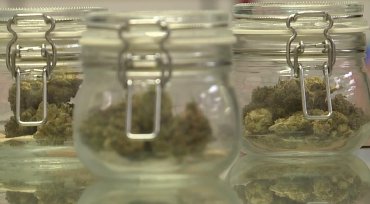In just two weeks, Californians are free to partake in recreational marijuana. But just because it’s going to be legal doesn’t mean the products sold initially are going to be safe.
For a six-month period, marijuana could remain full of toxins despite recreational legalization Jan. 1.
If you think buying marijuana from a dispensary means the product is safe, think again. Though medical marijuana has been legal for about 20 years in California there are no consistent health or safety screening standards to make sure that weed isn’t filled with toxins such as pesticides or mold.
The Davies family, owners of Canna Care dispensary, have been in the medical cannabis business for more than a decade, and in that time, there have been no consistent pesticide or toxic chemical screening standards for medical marijuana.
According to Donald Land, a cannabis researcher for Steep Gill Labs and a UC Davis professor, most cannabis sold in California is not tested for toxins and that’s a problem.
“Generally speaking, you don’t want toxins in your food and you don’t want toxins in anything you’re inhaling as well. The consumer should have the information about what’s in what they’re buying,” Land said.
However, in 2018 when recreational marijuana becomes legal, the game changes and all marijuana must be tested before being sold in dispensaries.
That’s a significant health and safety crackdown on the unpackaged and untested medical marijuana businesses are currently allowed to sell. Instead, dispensaries will only be allowed to sell packaged products that undergo third-party testing for pesticides and other contaminants.
But here is the “buyer beware”— Jan. 1 is when people can legally have pot for pleasure. However, dispensaries are allowed to continue selling their existing non-tested supply until July 1, as long as they label it “untested.” So for at least the next six months, buyers who want to know if their products are toxin-free need to pay close attention to product labels.
Davies warns against assuming that items in professional, attractive or expensive-looking packaging have necessarily been vetted.
He advised customers who want to verify their cannabis has been screened by a reputable company check the packaging of their product. Properly tested products should contain the lab name, batch and test number, according to Davies.
Although Canna Care currently sells both tested and non-tested products, the Davies family say they are happy to see California require all marijuana to be screened.
“It brings even competition to the market and allows us to follow a good set of standards,” said Davies.
credit:420intel.com


